To the Brink and Back
Sailing World
|Summer 2023
The Ocean Race's brutal third leg-nearly 13,000 miles of hard racing at full-tilt-produced epic stories of people and perseverance

What we're talking about is The Ocean Race's monster of a stage through the southern Indian and Pacific. What was originally a solution to the impossible challenge of trying to organize a round-the-world race with stops through Asia in the time of COVID-19 may have manifested itself as a new classic course the new Everest peak for fully crewed ocean-racing teams, starting in Africa and ending in South America.
It was always going to be one hell of a challenge, this great distorting marathon sitting among six other standard-size Atlantic-based stages in the 50th anniversary edition of The Ocean Race, formerly the Volvo Ocean Race and the Whitbread. And it looked to have disaster written all over it because there were so many unknowns: Would the foil-assisted IMOCA 60s, with their delicate appendages and lightweight hulls, be able to cope with the violence of being pushed full-pelt for 35 days through the most inhospitable seas on the planet? How would their four-strong sailing crews survive in their spaceship-size capsules, on a platform with a ride quality ranging from uncomfortable to unbearable? And how would the race's credibility survive this challenge, with only five boats on the starting line under Cape Town's Table Mountain? What if three-or worse, none of them-failed to complete the course? This later concern weighed heavily on race organizers and fans alike.

In the end, we were treated to an epic sporting story too deep and expansive for this space. And it was one that proved that even if there were only four boats on the racecourse (Guyot Environnement-Team Europe dropped out with structural issues), if they are good boats, then it can be a compelling watch. And these were good boats sailed by some of the world's best solo and fully crewed yachtsmen and women.
Denne historien er fra Summer 2023-utgaven av Sailing World.
Abonner på Magzter GOLD for å få tilgang til tusenvis av kuraterte premiumhistorier og over 9000 magasiner og aviser.
Allerede abonnent? Logg på
FLERE HISTORIER FRA Sailing World
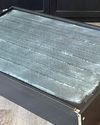
Sailing World
Tips for More Successful Epoxy Projects
That have nothing to do with epoxy mixing or application techniques
5 mins
Fall 2023
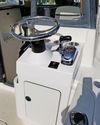
Sailing World
Auxiliary Rear Station Build
From past fishing experiences, I've learned that quick changes in speed and direction are often required when retrieving a hooked fish.
4 mins
Fall 2023
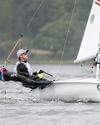
Sailing World
TARGETED PERFORMERS
Defending their title at the 420 Youth Worlds in July, Freddie Parkin and Asher Beck were on a roll-until they weren't.
6 mins
Fall 2023
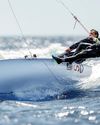
Sailing World
BALANCE ON THE PINNACLE
The path to gender equity in the Olympics has been a long and twisted one, but when the sailors assemble in Marseille next year, we'll finally see what's been a long time coming.
5 mins
Fall 2023
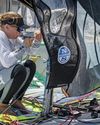
Sailing World
SIMPLE STEPS TO CONSISTENT SPEED
Boatspeed is the magic ingredient for winning races because we can get away with bad decisions if we are fast, but we can't make good choices if we're slow.
4 mins
Fall 2023
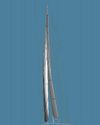
Sailing World
THREE-DIMENSIONAL JIB-LEAD ADJUSTMENTS
Floating jib leads give trimmers more dynamic control of the headsail profile.
5 mins
Fall 2023
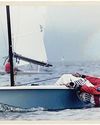
Sailing World
BETTER TOGETHER
Success over three decades comes down to making it meaningful.
3 mins
Fall 2023
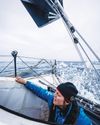
Sailing World
JUSTINE THE MACHINE
This self-effacing Swiss sailor has-in her quiet and understated way become one of the stars of offshore ocean racing in recent years, whether as part of a winning crew in The Ocean Race or building her credentials as a top-class solo racer.
6 mins
Fall 2023
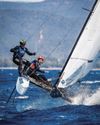
Sailing World
THE MULTITASKING MULTIHULL MOM
Competing in Olympic sailing's most challenging discipline is one thing, but doing so with a tyke in tow takes the campaign hustle to a higher level.
5 mins
Fall 2023
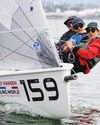
Sailing World
CONNECTED COAST TO COAST
From sunny St. Pete to historic Marblehead, the 34th edition of the Regatta Series linked sailors and friends across the country, with a few new twists.
3 mins
Fall 2023
Translate
Change font size

